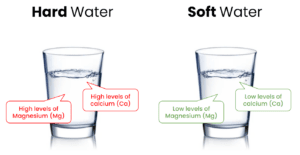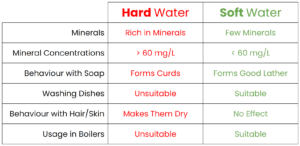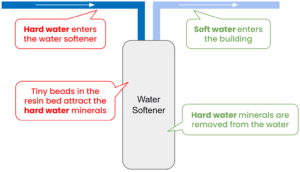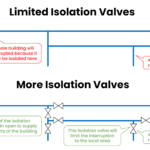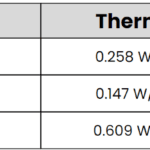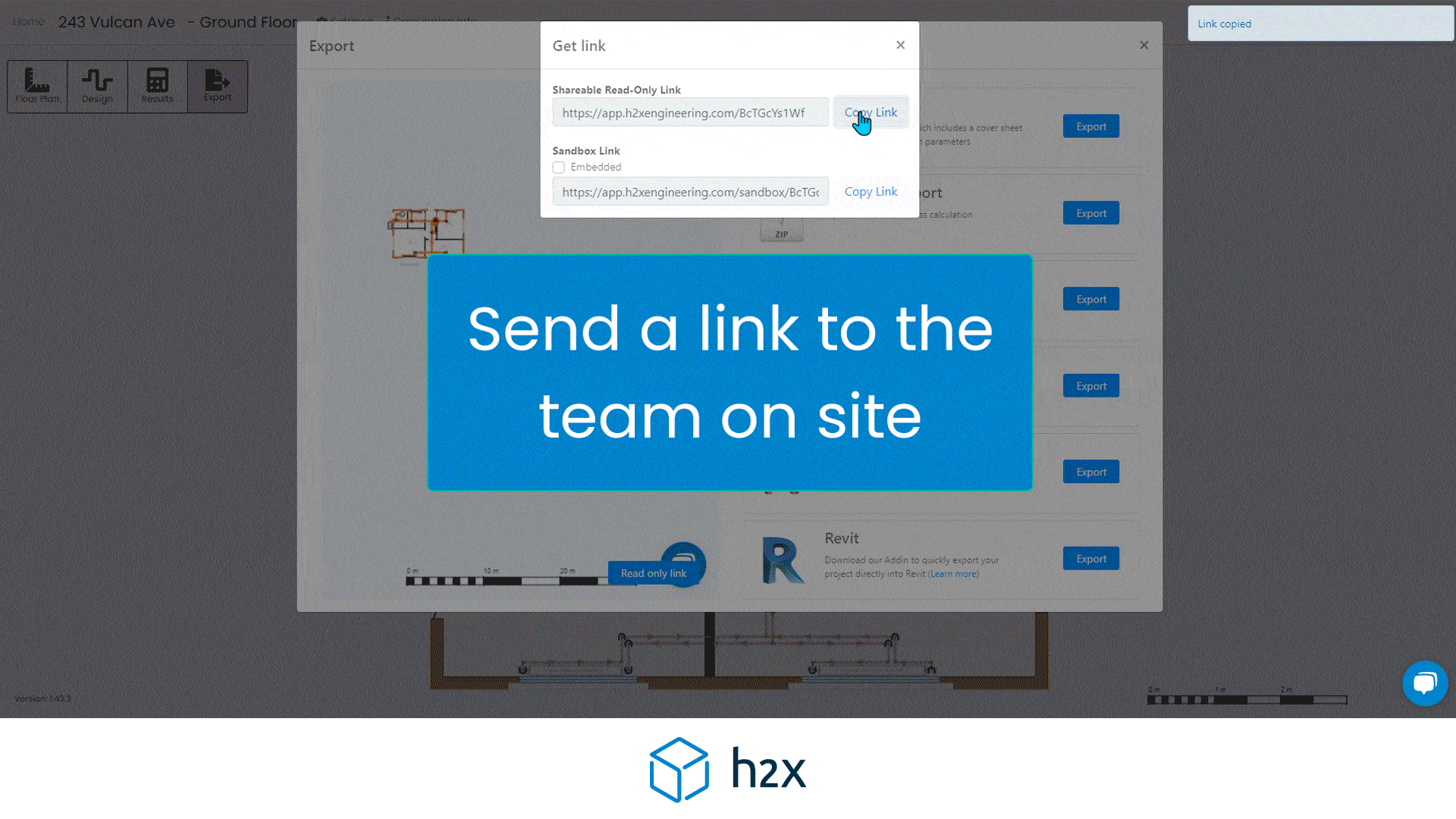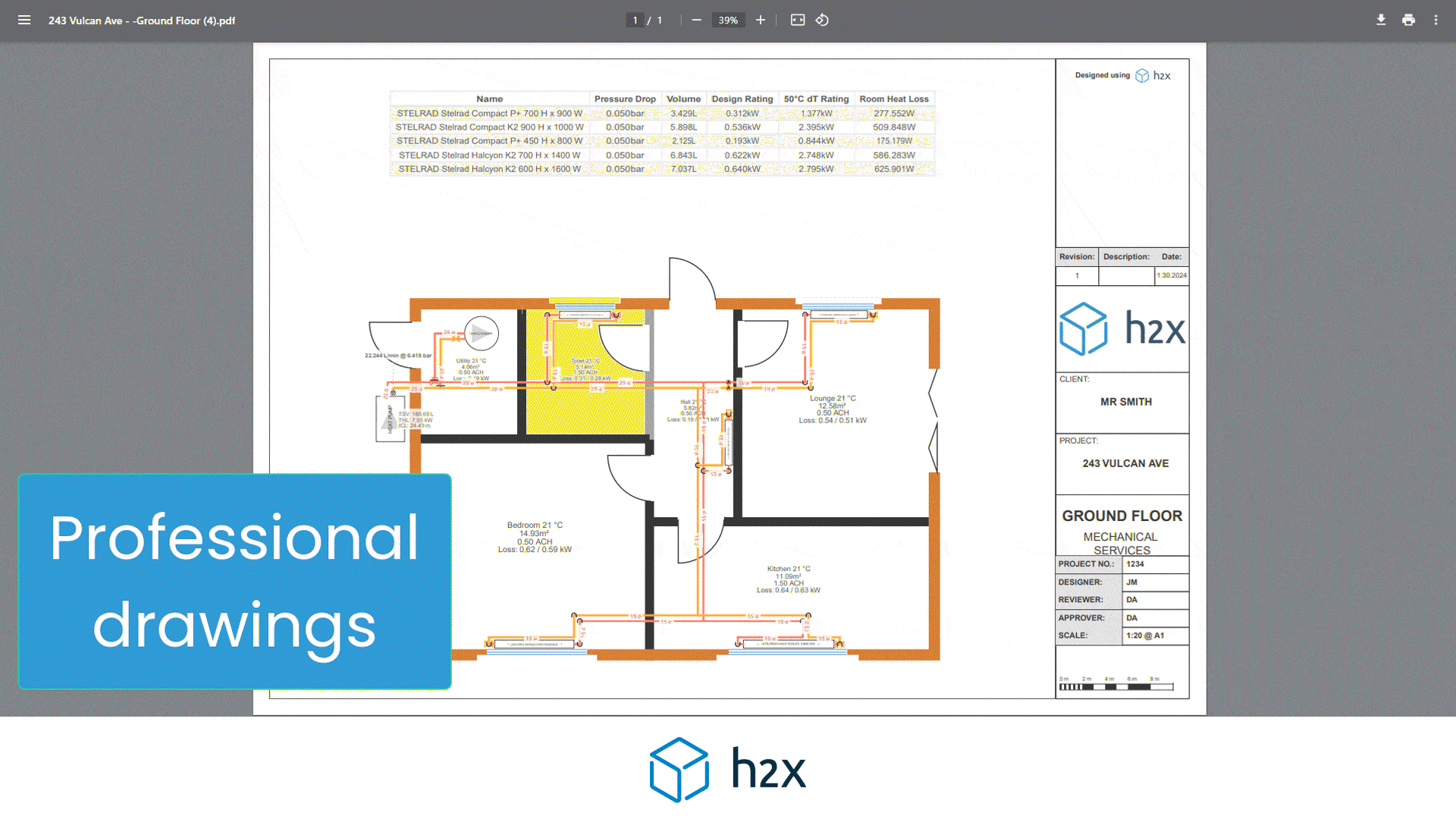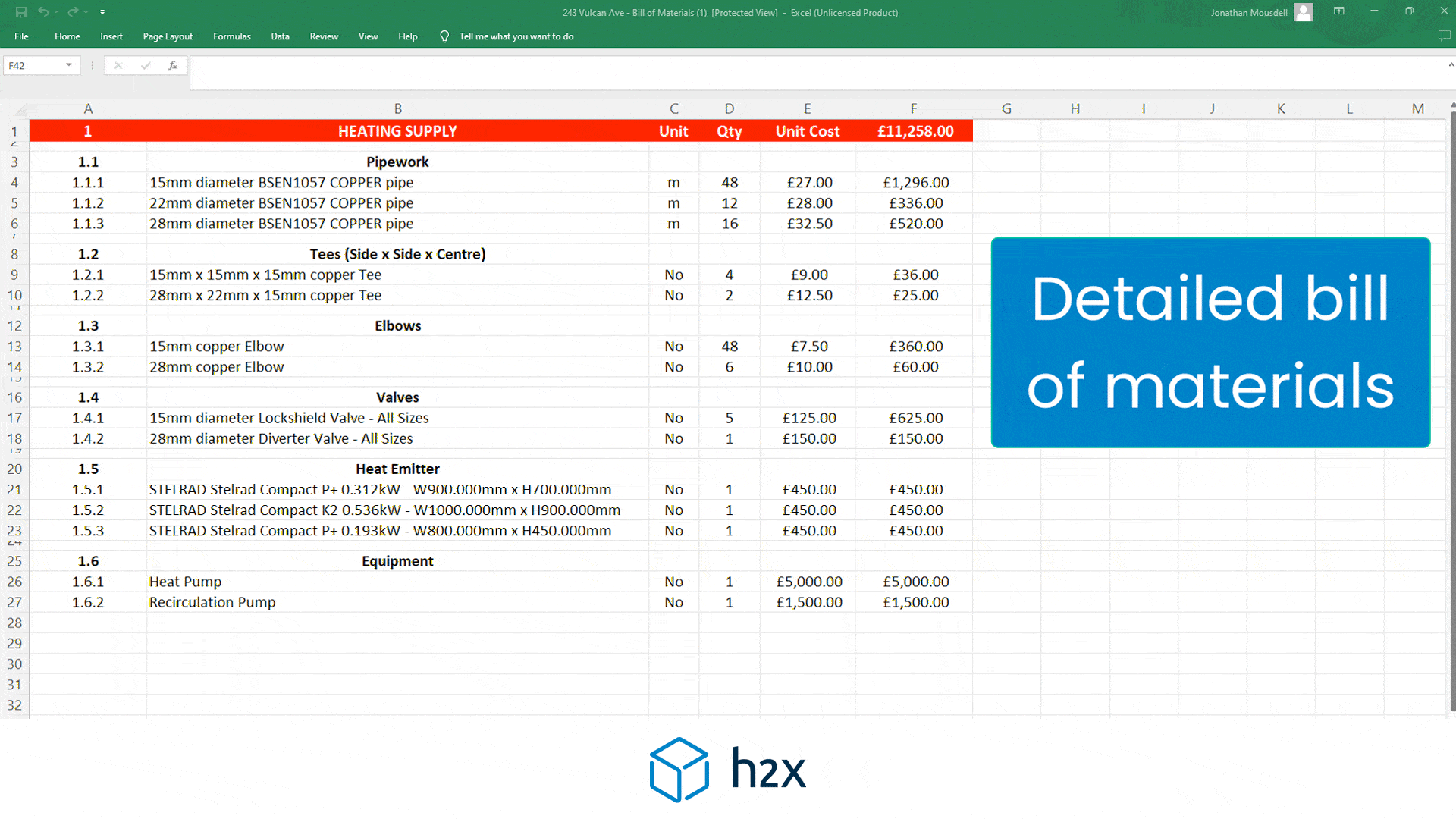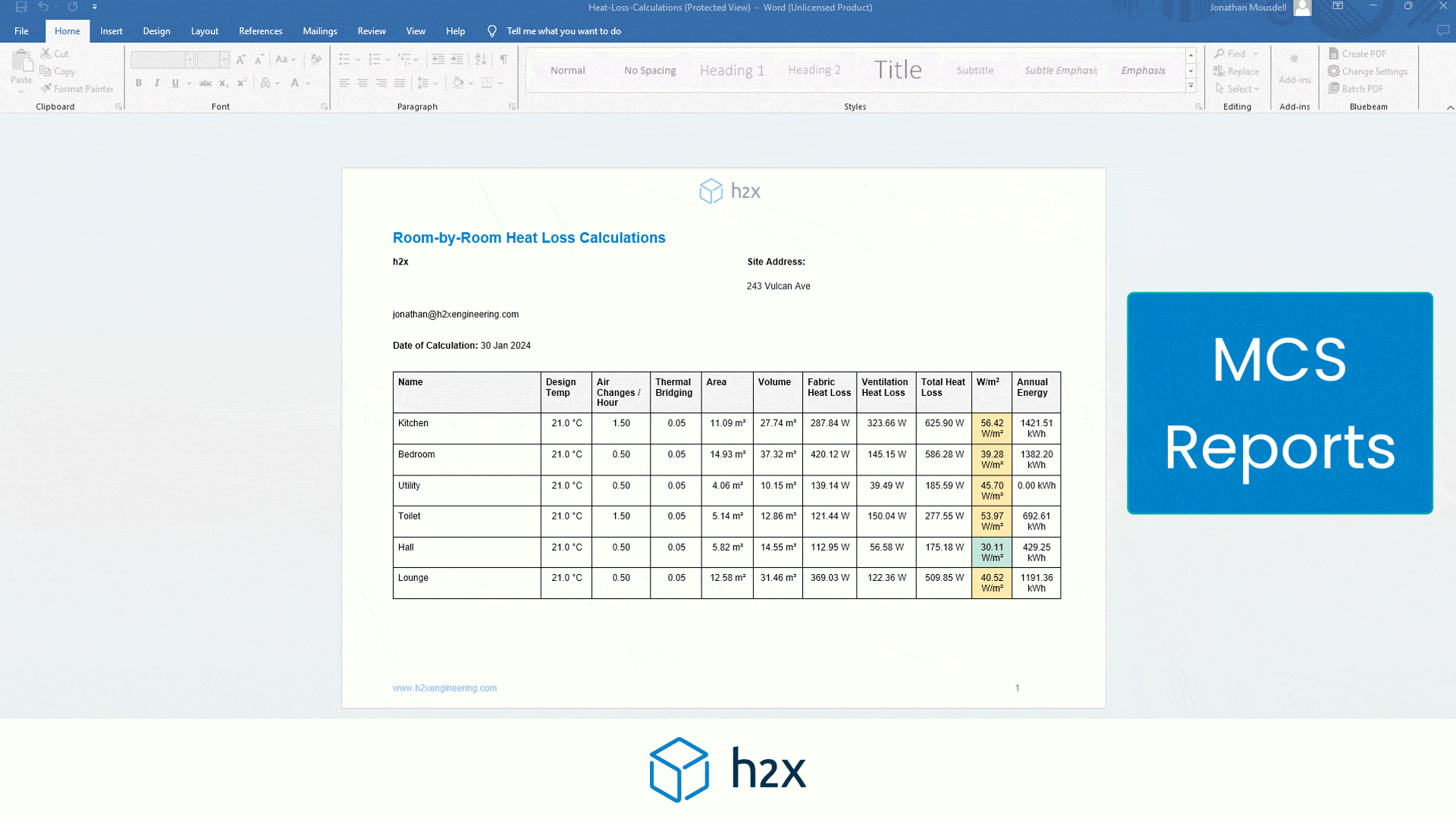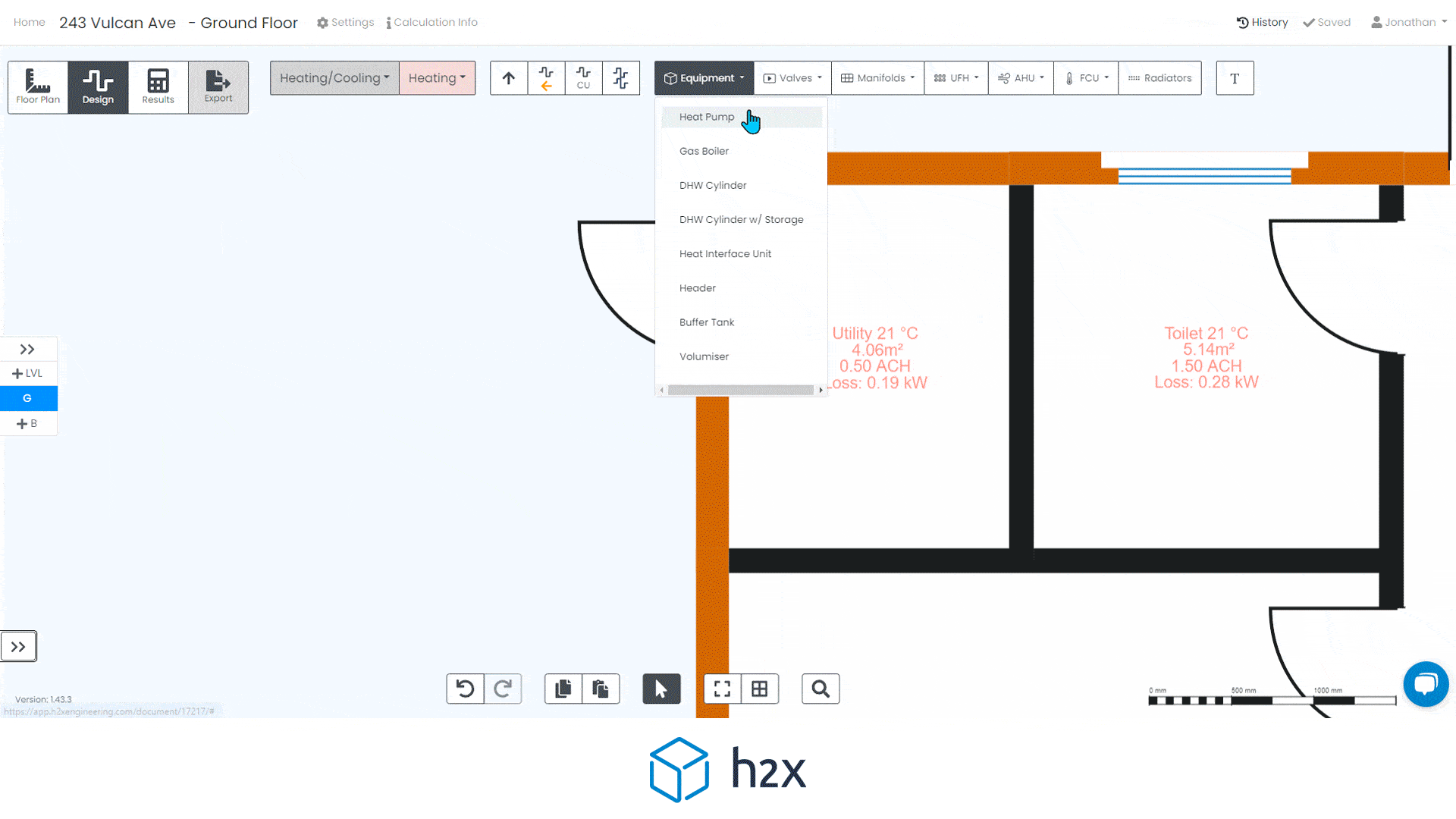
What is hard water?
Hard water is caused by high levels of dissolved minerals, primarily calcium and magnesium, in the water. Water picks up these minerals as they pass through rock formations, such as limestone or gypsum, which are rich in calcium and magnesium.
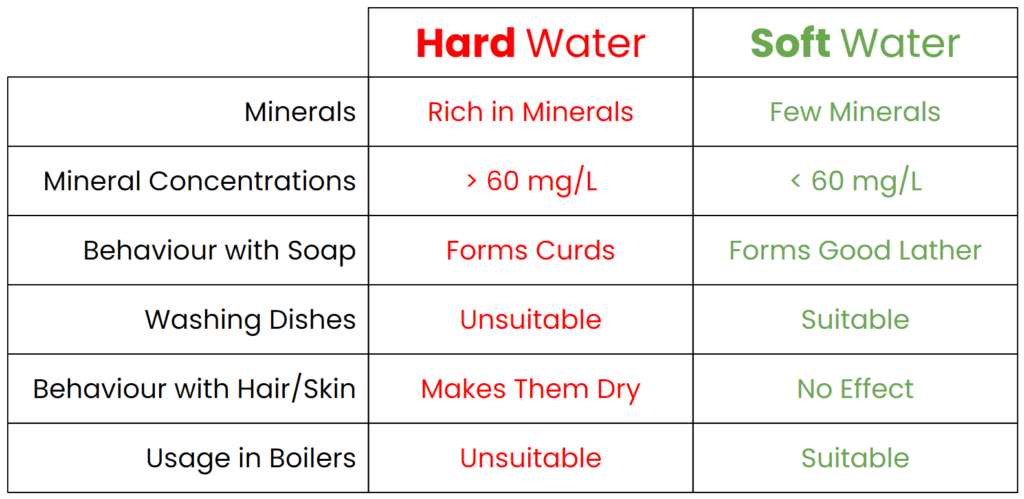
Download your free PDF of this article below.
Hard water is caused by high levels of dissolved minerals, primarily calcium and magnesium, in the water.
Water picks up these minerals as they pass through rock formations, such as limestone or gypsum, which are rich in calcium and magnesium.
The degree of water hardness can vary depending on the levels of these minerals and other dissolved substances like iron, aliminium, and manganese.
What are signs that the water is hard?
Several signs can indicate that your water is hard. Here are a few things to look out for:
- Soap Scum:
- If soap isn't lathering well, it may be a sign that your water is hard.
- Stained Fixtures:
- Hard water can cause rust-coloured stains on fixtures and appliances like sinks, toilets, and dishwashers.
- These stains are difficult to remove and can indicate high levels of iron or manganese in the water.
- Buildup on Equipment:
- Over time, hard water can leave mineral deposits on appliances like coffee makers, tea kettles, and equipment like water heaters.
- This buildup can reduce the efficiency of these appliances and lead to more frequent repairs or replacements.
- Spotty Dishes:
- Hard water can leave white spots or streaks on dishes and glassware, even after they've been washed.
- This is because the minerals in the water react with the detergent and prevent it from fully rinsing away.
- Dry Skin and Hair:
- Hard water can strip natural oils from your skin and hair, making them dry and itchy.
- It could be a sign of hard water if your skin or hair feels rough or brittle after washing.
Is hard water bad for you?
Drinking hard water is not necessarily bad for you, as it contains minerals like calcium and magnesium that are important for your health.
However, hard water can have negative effects on your skin and hair due to its high mineral content.
Is my water hard or soft?
According to the World Health Organization (WHO), the technical difference between hard and soft water is the dissolved calcium and magnesium ions concentration.
Soft water typically contains low calcium and magnesium ions levels, while hard water has higher levels of these minerals. The WHO defines water hardness based on the concentration of calcium carbonate (CaCO3) in the water, measured in milligrams per litre (mg/L) or parts per million (ppm).
- Water with a hardness of less than 60 mg/L (or ppm) is considered soft
- Water with a hardness greater than 120 mg/L is considered hard
- Water with a hardness between 60-120 mg/L is considered moderately hard
It's worth noting that different regions and countries may use different scales or definitions for water hardness.
However, the basic concept remains the same: hard water has higher levels of dissolved minerals, while soft water has lower levels.
Can water be too soft?
Extremely soft water, that is deficient in minerals, can have potential health consequences. Low levels of calcium and magnesium in the diet have been linked to health problems.
Therefore, it is important to strike a balance between the benefits of soft water and the need for a certain level of mineral content.
What is the water hardness in my area?
To determine the hardness of the water in your area, you can contact your local water utility or have your water tested by a professional lab.
How can I confirm that the water is hard?
If you're unsure whether your water is hard, you can have it tested by a professional water testing company.
They can provide a detailed analysis of your water's minerals and other contaminants and recommend the best treatment options.
What can I do about hard water?
You can install a water softener on the incoming water supply, reducing the water hardness to the system and appliances downstream.
How does a water softener work?
A water softener works through a process called ion exchange. The water softener unit contains a resin bed of tiny beads charged with sodium ions.
When hard water enters the unit, the calcium and magnesium ions in the water are attracted to the resin beads, and they displace the sodium ions.
As a result, the hard water is "softened" as the calcium and magnesium ions are removed and replaced with sodium ions.
Over time, the resin bed becomes less effective at softening the water as it becomes saturated with calcium and magnesium ions. At this point, the water softener enters a regeneration cycle, where a salt solution is used to flush the resin bed and recharge it with sodium ions.
The salt solution is typically added to a separate brine tank in the water softener unit. During the regeneration cycle, the brine solution is drawn into the resin bed, and the calcium and magnesium ions are removed, along with any accumulated sediment or debris.
The water softener unit then flushes the brine solution and excess water out of the system and returns to the softening cycle.
This process repeats itself as necessary to maintain soft water.
Water softeners effectively remove the minerals that cause hard water and can extend the life of appliances and plumbing systems.
However, they add sodium to the water, which can concern individuals on low-sodium diets or with specific health conditions.
What is the estimated installation and maintenance cost of a water softener?
A water softener's installation and maintenance cost can vary depending on several factors, such as the unit's type and size, the installation's complexity, and the cost of labour in your area.
On average, a basic water softener unit can range from $300 to $1,000, depending on the brand and features. However, larger or more advanced systems can cost several thousand dollars.
Installation costs can also vary but typically range from $250 to $1,500, depending on the installation's complexity and the labour cost in your area. If additional plumbing or electrical work is required, these costs can increase.
Maintenance costs for a water softener can include the cost of salt, which typically costs between $5 and $20 per bag, depending on the brand and quantity. The frequency of salt replacement can vary depending on the size of the unit and the level of water hardness, but it typically needs to be replaced every few weeks to a few months.
In addition to salt, water softeners may require occasional maintenance, such as cleaning or replacing the resin bed. These costs can vary depending on the complexity of the unit and the cost of labour in your area.
Overall, the cost of a water softener can vary depending on several factors, but it's important to consider the long-term benefits and potential cost savings of having soft water, such as reduced damage to appliances and plumbing systems and improved skin and hair health.
How much space does a water softener need?
The amount of space needed for a water softener can vary depending on the size and type of unit and the available space in your building.
A basic, compact water softener unit can be as small as 1 cubic foot and fit in a small closet or under a sink. These units are typically designed for small homes or apartments with low to moderate water usage.
Larger, more advanced water softeners can range from 1.5 to 5 cubic feet. These units are designed for larger buildings with higher water usage.
It's important to consider the water softener unit's size and the space needed for installation and maintenance. Water softeners typically require a space for a brine tank and access to a drain line for backwashing and regeneration.
Before purchasing a water softener, it's a good idea to measure the available space in your building and consult a professional plumber or water treatment specialist to determine the best size and type of unit for your needs.
What is the best location for a water softener?
The best location for a water softener depends on several factors, such as the size and type of unit, the plumbing configuration of your building, and the available space for installation. However, there are some general guidelines to follow when selecting a location for your water softener:
- Accessibility:
- Choose a location that is easily accessible for routine maintenance and salt replenishment. The unit should be located in a space that is easy to reach and has adequate clearance for working on the unit.
- Plumbing configuration:
- The water softener should be installed as close to the main water supply line as possible, ideally before the water enters the home. This helps to ensure that all water entering the home is treated by the softener.
- Drainage:
- The water softener needs access to a nearby drain line for backwashing and regeneration cycles. Choose a location near a floor drain or utility sink for easy drainage.
- Ventilation:
- Some water softeners require adequate ventilation to prevent the buildup of gases during the regeneration process. Be sure to follow the manufacturer's recommendations for ventilation requirements.
Common locations for water softeners generally include basements, garages, utility rooms, and plant rooms.
It's important to consult with a professional plumber or water treatment specialist to determine the best location for your specific needs and to ensure proper installation and operation of the unit.
h2x is design software built to ensure compliance, efficiency, accuracy and collaboration.
Mains water pipe size calculator provides automated calculations for flow rates, velocities, pressures, pump duties, plant sizing, and recirculation systems mean that you can focus on your project's design instead of undertaking tedious calculations.
h2x's straightforward user interface helps engineers produce high-quality designs and work more efficiently, all while adhering to industry regulations.
The software has already been used to size millions of kilometres of pipes in projects across the world.
Book a demo with us today to discover how h2x can help you improve your design and calculation workflow.
h2x: All-In-One Tool for Calculating, Designing, Estimating, and Paperwork

What's in the Pipeline?
Get technical resources delivered to your inbox weekly!
Testimonials
What Installers Say
What Consultants Say
A game changer for the humble plumber. Incredible.
Brad Winkel
Director at Queenstown Plumbing
Brilliant, simple and easy to use. Game changer.
James Major
Director at Hubb
Big time game changer to the industry!
Viv Jude
Director at UHC
Incredible software! Super user-friendly and allows you to save so much time.
Devni Gamage
Engineer at DMA
h2x is great software, our company use it nearly every day. It is easy to use with direct conversion from h2x to Revit.
Callum Craig
Engineer at WDE
h2x is fantastic software. It is very easy to use and the ability to output to Revit is a fantastic time saver.
Joe Kirrane
Engineer at MEP

